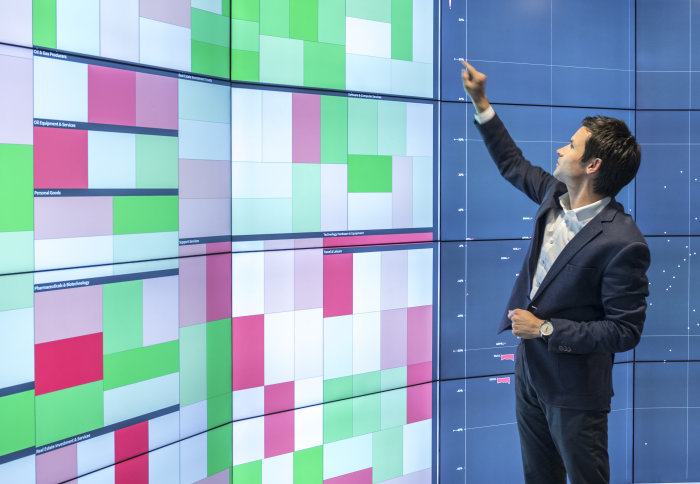Austrian AI collaborations to grow

Imperial’s lead in artificial intelligence and machine learning impressed leaders from Austria this week.
Imperial is to increase collaboration in artificial intelligence and machine learning with partners in Austria.
A new project, which focuses on human-interpretable AI, is in partnership with the Johannes Kepler University Linz (JKU) and the State of Upper Austria.
The researchers will investigate new ways to analyse, visualize and understand machine learning processes and algorithms.

A delegation from Austria, including Thomas Stelzer, Governor of Upper Austria, and the President of JKU, Meinhard Lukas visited Imperial to meet with AI researchers and Professor Neil Alford, Associate Provost (Academic Planning).
Governor Stelzer spoke about Upper Austria’s industrial strengths and focus on developing centres of innovation around its universities.
Exceptional ties with Austria

Professor Alford highlighted Imperial’s exceptional connections with peers in Austria, resulting in 1,700 co-authored research papers within the last five years.
Imperial is a world-leader in artificial intelligence, machine learning and data science research.
The College now has over 600 people using AI to tackle global challenges. Imperial’s AI network, brings together experts from engineering, medicine, natural sciences and business to develop AI methods and systems across a range of applications.
The collaboration will be led by Imperial’s Dr Bernhard Kainz, from the Department of Computing and Professor Marc Streit, from the Institute of Computer Graphics, Johannes Kepler University Linz.
Blue sky research

Dr Kainz is part of Imperial’s Biomedical Imaging Analysis Group who focus on pursuing blue sky research including computer-aided detection and
diagnosis of medical conditions. He specialises in ‘deep learning’.
Dr Kainz said: “Machine learning can learn from thousands of scans to provide a radiologist with expertise or a second opinion.
"The aim is to remove machine-like tasks from humans to free up time so they can focus on patients. But we need a lot of data to do this.”
 In Imperial’s Data Observatory, Professor Streit, also an Imperial College Business School lecturer, demonstrated ThermalPlot, a visualisation of trading volumes of the FTSE 250 stock market index.
In Imperial’s Data Observatory, Professor Streit, also an Imperial College Business School lecturer, demonstrated ThermalPlot, a visualisation of trading volumes of the FTSE 250 stock market index.
Professor Streit explained that his work involves ‘interpreting big data into visuals, which humans can interpret’.
Article text (excluding photos or graphics) © Imperial College London.
Photos and graphics subject to third party copyright used with permission or © Imperial College London.
Reporter
Stephen Johns
Communications Division